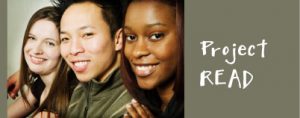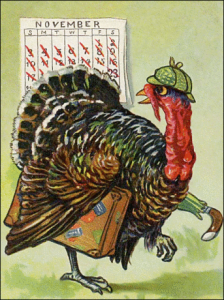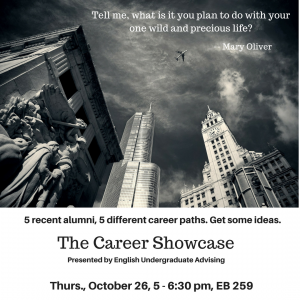Do you love teaching? Are you interested in teaching English abroad? There are plenty of opportunities in East and Southeast Asia, and the Middle East.
Every year China, Japan, South Korea, Singapore, Saudi Arabia, Kuwait, the UAE and some other countries in Asia and the Middle East, recruit a number of English teachers with a preference given to native speakers of English. Searching the keyword “English” in Handshake will bring up any number of these opportunities.Many offer good packages in terms of remuneration, health coverage, and accommodation. With a bachelor’s degree in English, anyone who is a native of an English speaking country can apply for these positions.
Is Teaching English the Right Path for You?
The best way to find out if you enjoy teaching second language learners, before you renew your passport and invest in a plane ticket, is to give it a try — which can also help you get experience that will help you land a position. Champaign-Urbana offers many opportunities to get some experience of working with non-native speakers of English.

- The Intensive English Institute. Each semester the Intensive English Institute hires a number of undergraduate students for internships, and these positions are paid. You can also volunteer to be convopartners of international students at the institute, which will require you to spend one hour each week with ESL students. This will give you the opportunity to exchange culture and experience the world from another perspective.
- Illinois International Hospitality Committee. You can also volunteer for English classes through the University of Illinois International Hospitality Committee.
- Project READ, Parkland College. Volunteering at Parkland College can give you exposure to adult language learning. Project READ, a not-for-profit literacy service in Parkland College, provides free tutoring to adult learners seeking to improve their reading, writing, and/or English as a Second Language skills. Volunteers are needed throughout the Parkland College district. All Project READ tutors attend 12 hours of formal training to earn certification in tutoring adults. Tutor Certification Training is offered on a monthly basis at various locations. For more information about finding a tutor or to become a volunteer tutor, call 217/353-2662.

Formal Certification in TESL?
Some programs for teaching English abroad require certification in teaching English as a second language. This credential can be obtained from the Department of Linguistics at the University of Illinois at Urbana-Champaign.
The Department of Linguistics offers a Certificate in TESL for undergraduate students. Undergraduate students may pursue the Certificate in TESL as a stand-alone certificate, through a Minor in ESL, or Teacher Education Minor in ESL. For the certificate, undergrads need to take six courses three of which are compulsory and the rest are elective. Those pursuing the Certificate in TESL via a Minor in ESL must declare a Minor in ESL at the beginning of course work for the minor.



